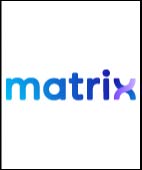
LIFE Project: Safe water reuse in Managed Aquifer Recharge: an innovative solution combining physical, digital, and governance aspects
- Type Project
- Status In progress
- Execution 2021 -2027
- Assigned Budget 1.675.312,00 €
- Scope Europeo
- Autonomous community Andalucía
- Main source of financing LIFE
- Project website Web del proyecto
LIFE MATRIX addresses the problem of water scarcity and aquifer overexploitation by combining two different techniques, Managed Aquifer Recharge (MAR) and Safety Plans (MAR-SP), using reclaimed water on the Costa del Sol.
Over the past decade, drought episodes have become more frequent in the EU, with one-third of the EU territory experiencing water stress. The impact is particularly severe in regions with high seasonal water demand that compromises the availability of natural water resources. Declining water availability and increasing demand are often correlated with the deterioration of the ecological, chemical, and quantitative status of surface and groundwater bodies, leading to the overexploitation of aquifers and salinization of coastal areas (EEA, 2018). Managed Aquifer Recharge (MAR) with reclaimed water has clear benefits compared to desalination, such as lower greenhouse gas emissions due to lower energy consumption and improved groundwater quantity and quality.
- Demonstrate the technical and economic viability of MAR with reclaimed water, and its environmental and health safety.
- On-site demonstration of an integrated solution comprising physical, digital, and governance aspects.
- Increase the availability of groundwater resources in water-stressed areas and boost social acceptance of the use of reclaimed water by involving key stakeholders in developing practical guidelines.
- 10% increase in reclaimed water at the demonstration site from around 500,000 to 550,000 m3/year.
- 15% increase in groundwater recharge in the demonstration aquifer from approximately 335,000 to 385,000 m3/year.
- 13% reduction in the water exploitation index (WEI+) in the demonstration aquifer from 1.13 to 1.
- Improve the quantitative status of water bodies from poor to moderate by providing an alternative water resource.
- A 99% reduction in energy consumption compared to the energy required to produce the same amount of water at the Marbella Desalination Plant (PDM) by replacing 50,000 m3/year of desalinated water with recharged water. The energy required by the MATRIX solution is 0.039 kWh/m3, significantly lower than the PDM (4.5 kWh/m3).
- 99% reduction in GHG emissions compared to the energy required by the MDP to produce the same amount of water: from 1.8 to 0.02 kg CO2/m3.
- Reduction in the discharge of emerging pollutants compared to the current situation: 10-50% for neutral compounds and zwitterionic compounds; 10-50% or more than 50% for anionic compounds; more than 50% for cationic compounds.
- Replication of the MATRIX solution at three European sites.
- Coordinator/entity name: Damián Sánchez
Postal address: Calle Severo Ochoa, 7, 29590, Málaga,
The project contributes to the Roadmap to a Resource-Efficient Europe, the European Green Deal, the Seventh Environment Action Programme, the Water Framework Directive, the Groundwater Directive, the Urban Wastewater Treatment Directive, and the EU Circular Economy Action Plan.
- Fundación Centro Andaluz de Investigaciones del Agua
- CETAQUA(Cetaqua, Centro Tecnológico del Agua, Fundación Privada)
- UMA(UNIVERSIDAD DE MáLAGA)
- ACOSOL(Acosol S.A.)







